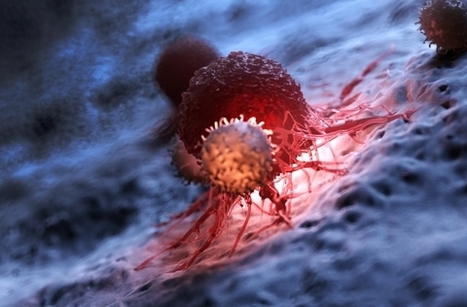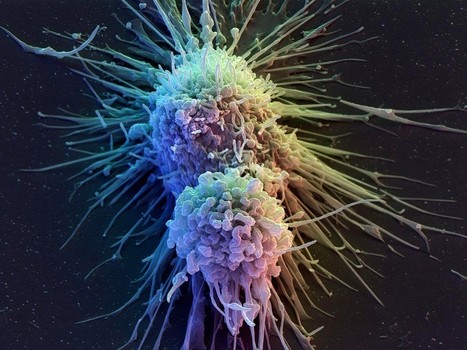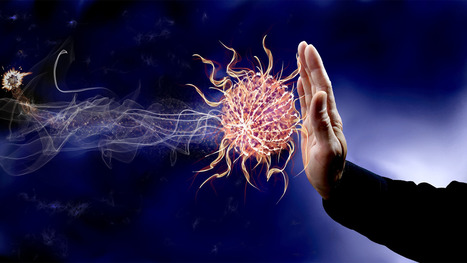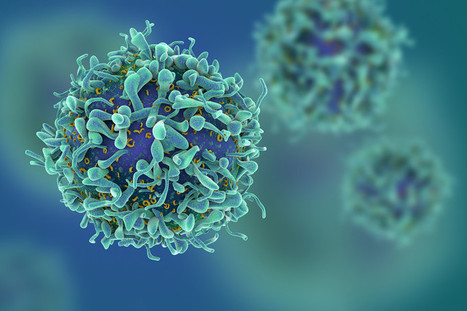Chimeric antigen receptor T-cell therapy, or CAR T, has dramatically improved the treatment of certain blood cancers. Initially approved for patients who had failed multiple lines of therapy, clinical trials have shown CAR T can be used as an earlier treatment option.
Research and publish the best content.
Get Started for FREE
Sign up with Facebook Sign up with X
I don't have a Facebook or a X account
Already have an account: Login
 Your new post is loading... Your new post is loading...
 Your new post is loading... Your new post is loading...
|
|















Axi-cel CAR T therapy targets the CD19 molecule on large B-cell lymphoma cells. The ZUMA-7 trial demonstrated that axi-cel reduced the risk of disease progression, need for retreatment or death by 60% compared with standard therapy. Despite these positive results in terms of event-free survival and overall survival, some patients did not respond well to treatment or relapsed rapidly after treatment. Researchers analyzed tumor gene expression patterns from patient samples and determined that a B-cell gene expression signature and CD19 protein expression were significantly associated with improved event-free survival for patients treated with axi-cel but not with standard therapy. Patients with lower tumor cell levels of CD19 showed gene expression patterns associated with immunosuppression. These observations suggest that the tumor immune environment may play an important role in regulating axi-cel treatment and outcome. Furthermore, biomarkers associated with improved axi-cel treatment outcomes decreased as patients received more treatments, suggesting that receiving axi-cel as part of earlier treatment lines is essential to ensure better patient outcomes.